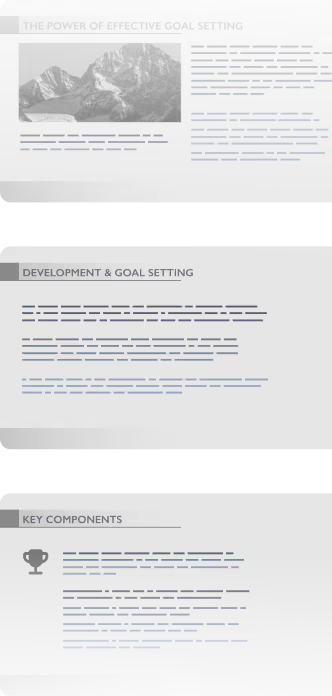The best AI-powered alternative to PowerPoint
Create stunning presentations in seconds with Prezi AI, the AI presentation platform proven to capture attention better than PowerPoint.


How Prezi beats PowerPoint
Hitrejše, boljše predstavitve s Prezijem
Funkcije


Umetna inteligenca – ustvarjeno


Animacije


Nadgradite obstoječe predstavitve


Prilagodljivost v živo


Sodelovanje


Analitika


Mobilna aplikacija


Cenik


Že uporabljate PowerPoint? Preklop je preprost. Prezi AI vam pomaga v nekaj sekundah znova ustvariti predstavitve.
Build smarter. Deliver faster.
Custom presentations made quickly
Začeti s Prezijem je enostavno. Naložite obstoječo predstavitev ali preprosto vnesite svojo idejo v Prezi AI. V nekaj sekundah boste prejeli po meri pripravljeno predstavitev, ki je vizualna, urejena in pripravljena, da navduši. Brez predlog in brez dolgočasnih vsebin.
Effortless creation
En klik pomeni eno končano predstavitev. Prezi AI razume, kaj predstavljate, in jo takoj oblikuje. Porabite manj časa za izdelavo in več časa za odlično opravljeno delo.
Scientifically proven engagement
Prezi ni le za lepe diapozitive (tudi teh imamo veliko). Gre nam za rezultate. V v slepi študiji, ki jo je vodila univerza, se je izkazalo, da je Prezi 25% učinkovitejši in 22% bolj prepričljiv kot statične predstavitve. To pomeni, da si bodo ljudje zapomnili, kar ste povedali, in tudi ukrepali.
Collaborate better. Present smarter.
Real-time collaboration
Sodelovanje s Prezijem vas ne upočasni. Vaša celotna ekipa lahko v živo skupaj ustvarja, ureja in pregleduje predstavitve. Brez čakanja na posodobitve, brez zmešnjave z datotekami.
Komplet za blagovno znamko
Ostanite popolnoma v skladu z blagovno znamko za vsako predstavitev. Prezi‑jev komplet za blagovno znamko zaklene vaše barve, pisave in logotipe, tako da je vsaka predstavitev, ki jo ustvarite, dosledna in profesionalna – tudi ko jo za vas ustvari Prezi AI.
Storytelling in motion
Statične prosojnice uspavajo občinstvo. Naša dinamična postavitev ga pritegne in vam omogoča, da se med idejami premikate na naraven način. Poudarite tisto, kar vaše občinstvo želi videti, točno takrat, ko si to želi. Ustvarjajte predstavitve, ki si jih ljudje res zapomnijo.
Zakaj uporabniki PowerPointa prehajajo na Prezi
V preteklosti sem uporabljal veliko orodij za predstavitve, vendar izstopa Prezi kot eno najboljših. Njegova edinstvena funkcija približevanja in dinamične postavitve naredijo moje predstavitve vizualno privlačne in veliko bolj zapomljive kot tradicionalni diapozitivi.
Navdušil sem svojega so-učitelja, ko sem mu pokazal, kaj zmore Prezi AI. Vneseš le nekaj besed in oblikuje celoten SHOW. Potem sem se lahko vrnil, uredil in dodal še več stvari. Načrtujem, da bom to pogosteje uporabljal za poučevanje z "pizz zazz"!
Pred 10 leti sem prešel s PowerPointa na Prezi in se nikoli več ozrl nazaj! Kot učitelju mi je Prezi v razredu neprecenljivo orodje, ki ure naredi bolj privlačne in interaktivne.
Še vedno uporabljaš PowerPoint? Marsikaj ti uide.
Prenehi zapravljati čas za predloge in dolgočasne diapozitive. Prezi AI ustvarja, oblikuje in ti pomaga predstaviti z neprimerljivo hitrostjo in učinkom. Podprto z znanostjo in zaupajo mu milijoni.


Pogosta vprašanja
Ali lahko v Prezi uvažam in izvažam predstavitve PowerPoint?
Yes! Upload any existing presentation as a PPTX, PDF, or DOCX file and Prezi AI will automatically rebuild your presentation with a fresh, dynamic design. You can export any presentation from Prezi as a PowerPoint file, too.
Katera umetna inteligenca je najboljša za predstavitve v PowerPointu?
Prezi AI is trained on the largest public presentation library available and refined by our team of presentation designers. That means an AI presentation maker that knows how to make great decks, even if you need them as a PowerPoint.
Ali obstaja brezplačen generator za PowerPoint?
Yes. With Prezi, you can make your presentation with all of our upgrades and then export your work as a PowerPoint file. That means all the benefits of Prezi, converted into the file type you need.
Ali je Prezi boljši od PowerPointa za moj razred?
Definitely. Educators around the world love Prezi because it does a better job keeping your students interested and makes complex ideas easy to follow. We’ve even got a special plan for educators like you.
Ali lahko uporabljam Prezi s svojo ekipo?
Yes! Prezi is built for collaboration. You and your team can create, edit, and present together in real time from anywhere. It’s easy to add comments, make live updates, and stay in sync without needing to send endless presentation versions to each other.










